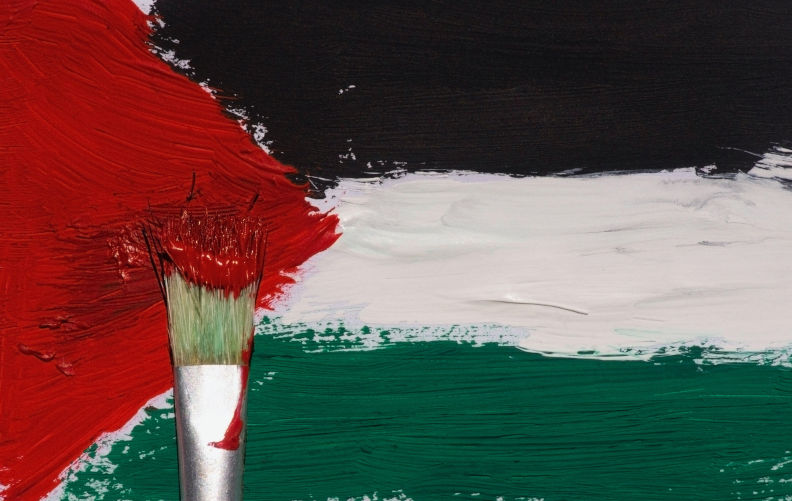Palestine and the gravitational politics of erasure
June 11, 2025
What we are witnessing in Gaza is not only a genocide of lives, but a systematic campaign to obliterate a people’s cultural identity, memory and future.
The mass killing of civilians, the destruction of universities and schools, the levelling of libraries and mosques, these are not collateral damages. They are acts of cultural erasure. They are the violence of a centre attempting to extinguish all coherence at its margins.
This article draws on a chapter from my forthcoming book manuscript, Circles of Inclusion, which introduces a new framework for understanding power, identity, and resistance. At its core is the idea of “gravitational power”, a force exerted by dominant centres that not only exclude but reframe, absorb, or annihilate anything that threatens their self-image. What is happening to Palestinians, in Gaza and beyond, is one of the clearest, most devastating demonstrations of this power at work.
In this model, power is not always loud. Often, it is silent. It draws others into its orbit by demanding translation, compliance or silence. In Gaza, the centre has abandoned even the pretence of moral justification. The aim is not just to defeat Hamas or degrade infrastructure. It is to render Palestinian identity uninhabitable. To make the mere act of remaining Palestinian a threat. A problem. A target.
But the gravitational pull of the Israeli state is not acting alone. It is nested within the wider ideological force field of Western liberal democracies, where support for Israel has become an article of political faith. From the US to Germany to Australia, governments have issued statements about Israel’s “right to defend itself” while downplaying, or outright ignoring, the annihilation unfolding in front of us. These are not neutral failures. They are performances of alignment. They signal who belongs in the circle of legitimacy and who does not.
Australia, in particular, reveals something important about how this gravitational logic extends beyond the battlefield. While formally distant from the conflict, its foreign policy and domestic response have followed a predictable script. Political leaders across major parties have repeated the lines of strategic allies, even as public opinion shifts. Criticism of Israel is policed. Solidarity with Palestinians is surveilled. To speak against the centre is to become suspect, dangerous, even.
As the bombs fall, so too do the voices. Journalists are sacked. Activists are deplatformed. Academics are warned. The cost of Palestinian solidarity is not just repetitional, it is structural. Access to media, jobs, and funding can evaporate. Self-censorship becomes a survival strategy. This is the gravitational politics of voice: the more you name the truth, the more marginal you become.
And this dynamic doesn’t stop at the borders of nation-states. Countries like Australia, often described as “middle powers”, face their own gravitational pull. Their allegiance to the dominant centre is maintained not by legal compulsion but by political gravity: the pressure to align with the values, narratives, and strategic interests of their allies. Australia’s failure to take an independent, principled stance on Gaza is not just about realpolitik. It’s about orbit, about remaining within the safe gravitational zone of the Western alliance.
At the heart of all of this is a contest not just over territory, but over coherence. The targeted destruction of Gaza’s schools, mosques, hospitals, cultural centres, and civic institutions is not incidental, it is deliberate. It is part of a wider effort to fracture Palestinian identity, to disrupt the continuity of memory, knowledge, and belonging. To erase not only a people, but the possibility of their future.
The real challenge for those in positions of privilege, especially in Australia, is not just to express outrage at Gaza’s destruction. It is to ask: Where am I in this gravitational field? Have I mistaken discomfort for danger? Have I confused silence with safety? What does my positioning cost others?
The battle for Palestine is a battle for voice, for memory, and for meaning. It demands more than sympathy. It demands ethical reorientation from all of us. Not everyone can resist in the same way, but everyone must locate themselves in the orbit of this violence. The centre cannot hold. Nor should it.
Because in the end, as I argue in my book, no centre is permanent. It endures only for as long as we fear it, comply with it, or believe it is all that is possible. What Palestinians are showing us, at enormous cost, is that even in the face of annihilation, it is possible to refuse collapse. To remain coherent. And in that coherence, to remind the world what humanity still means.
The views expressed in this article may or may not reflect those of Pearls and Irritations.

